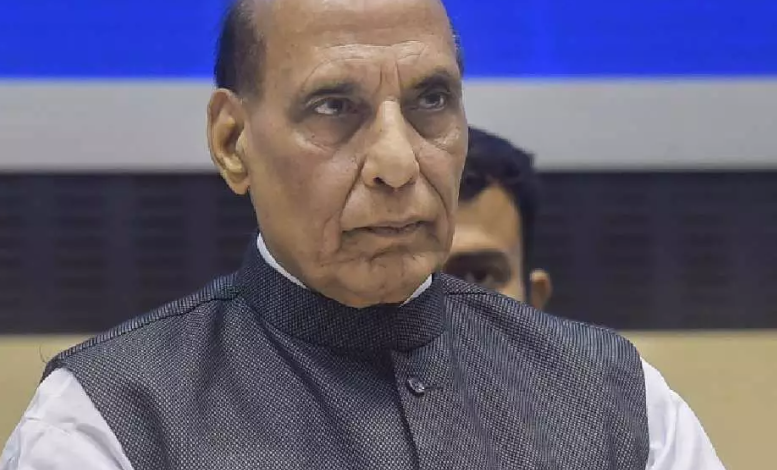Rajnath strongly pitches for reform of United Nations

The potential geopolitical fault line in the maritime domain in East Asia could be “graver” than what is being witnessed, Defence Minister Rajnath Singh said on Tuesday, amid escalating tensions in the Taiwan Strait.
In a virtual address at the Moscow Conference on International Security, Singh also strongly pitched for reform of the United Nations (UN), saying the global body may progressively lose its effectiveness without democratisation in its decision-making.
The defence minister said the refusal of major powers to change UN institutions in tune with time ignores the emerging geo-political realities and economic and technological progress that has happened since 1945.
“Global security in the framework of multilateralism requires abiding by the UN charter and principles of international law, which act as a bulwark against anarchy, instability and higher chances of conflict,” Singh said.
He observed that the UN can deliver effective solutions only if it gives a voice to the entire world rather than “zealously guarding the status quo”.
“Conflicts could seriously jeopardise political and economic stability and development efforts. For example, the potential geopolitical fault line in the maritime domain — particularly in East Asia — could be graver than what we are witnessing today,” Singh said.
The maritime zones in East Asia have been witnessing rising unease largely because of China’s aggressive military posturing.
The Chinese military has been carrying out large-scale military drills around the Taiwan Strait following US House Speaker Nancy Pelosi’s recent visit to Taipei.
“As a nation central to the Indian Ocean, India is committed to a free, open, secure and inclusive Indo-Pacific region that promotes sustainable maritime trade and economic practices, resilient infrastructure and adherence to global legal order,” Singh said.
He said India’s resolution of maritime border issues with neighbours as per international law and its focus on regional maritime cooperation in the Indian Ocean bear testimony to the value that India places on multilateralism.
“Multilaterally or through partnership with willing nations, India will continue contributing to a positive and constructive agenda that seeks to address contemporary global priorities,” Singh said.
The defence minister said India’s active participation in the Shanghai Cooperation Organization (SCO) is manifest of one such priority in pursuit of peace, stability and prosperity in Eurasia, of which India is an “inalienable part”.
“A faith in global conventions and regulations and a multilateral, dispassionate approach overcoming isolation, unilateralism and temptation of temporary gains, can usher us into an era of genuine multilateralism,” he said.
The defence minister noted that the UN has given a platform for global progress in a number of areas, but clearly there is a “crisis of confidence” today in the UN system.
“While the UN has addressed most of these issues somewhat partially and intermittently, our collective effort has nonetheless fallen short in providing effective and enduring solutions, particularly due to the infirmities within the multilateral system,” he said.
“Several contemporary global challenges have come to the fore such as terrorism, radicalism, climate change, growing asymmetric threats, disruptive role of non-state actors and the intensifying geopolitical competition, all of which call for a robust multilateral response,” he added.
Singh said this “worrying shortcoming” of the UN system is manifestation of its structural inadequacy.
“Without comprehensive reforms of UN structure and without democratisation in decision-making, the UN might progressively lose its effectiveness and relevance,” he observed.
“When power structures continue to reflect the status quo of a bygone era, they also start reflecting a lack of appreciation of contemporary geopolitical realities,” he said.
He said at the core of India’s call for reformed multilateralism lies the reform of the UN Security Council, reflective of the contemporary realities of today.
“There is an incongruity today in the expectation that multilateralism under the UN will deliver, when the UN and its sister organisations, including economic and financial entities, are structurally frozen or hardly moved since their inception,” he said.
Singh said the UN Security Council must be made more representative of developing countries if it wants to retain the trust and confidence in its ability to provide leadership to the entire world.
Source: PTI
Photo: Internet






